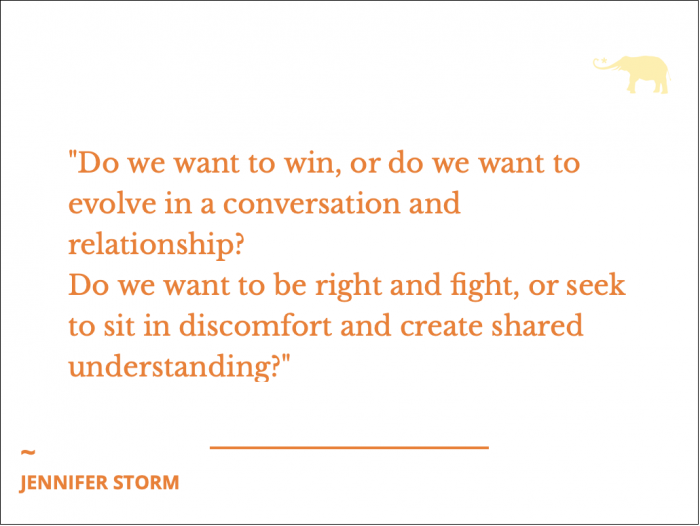As an author and lecturer, I have traveled the world talking about sexual violence, substance use disorders, and the impact of trauma.
In every presentation I have given, I’ve used a slide that for me is one of the single most important pieces of training I can impart on anyone who works with survivors and those impacted by trauma:
“Perception is reality.”
This has always been one of my favorite slides to use during educational presentations because the acceptance of this truth can end so much frustration, so much judgment, and allow people to see and meet others exactly where they are.
Perceptions are subjective. Two people can witness the same crime, or experience the same conversation, and walk away with different perceptions of what they saw, heard, felt, and experienced. It’s because we all come into any given situation with our minds, past experiences, values, beliefs, and preconceived notions. While basic facts are usually consistent, or at least similar, the experience, the takeaway, or the perception left, will always be slightly different, and sometimes wildly different.
This is not only a huge tool for those working in law enforcement to understand and dissect, but can and should be considered in all our interpersonal relationships and communications.
In recent months I have been going through a huge shift in my relationship, and this statement, this thing I have trained on for years has truly begun to have new meaning to me in my relationships and communications.
Have you ever had a conversation with someone only to walk away feeling one way then later find out they received or interpreted something differently from that same interaction? It can feel maddening, like you’re losing your mind. You ponder, “How can I have such a different perspective on what just happened?”
While sometimes this is a tactic like gaslighting, or manipulation, what I am coming to realize is that often it is less sinister than that, and falls more into the category of basic miscommunication. Either one person was listening to react and not to hear, and therefore had their brain army all geared up to react no matter what the other had to say, or they truly completely misunderstood what the other person was saying and failed to ask clarifying questions.
What I’m trying to work on now is being more conscientious in my communication—really trying to shut the reactive side of my brain down and truly listen and hear.
Rather than make assumptions the minute a word triggers me, I am trying to stop, breathe, and then ask clarifying questions in a nonjudgmental way. This is not always easy—it requires active listening and patience.
Another vital tool in truly listening to understand is to parrot back what we think we heard. By asking questions in this way, we can rephrase what we heard, and either ask for clarification, or confirmation: “So, what I hear you saying is this, is that correct?” And wait for confirmation or for them to explain.
Try not to allow your reptilian brain to take over and flood you with emotions; instead sit in that space of discomfort and get curious. Try to be open, humble, kind, and breathe.
It is so hard, especially when our emotions are running wild. It’s easier to react from a defensive and protective stance, than to wait, hear, and respond from a place of curiosity.
If the person is being manipulative or gaslighting, that would slowly become clear when the clarifying questions or parroting back do not work. If the person is constantly trying to defend themselves, invalidating your feelings, or twisting your words around, stop, walk away, and disengage. That is not a healthy or safe person for you to sit in discomfort with.
This is not always easy to decipher, so be patient with yourself. If after practicing everything above, you still feel like you are losing your mind, or you cannot make heads or tails of the conversation, then you have a choice: you can continue in what is surely a cycle of miscommunication, or possibly gaslighting, or you can choose to disengage.
The choice is always ours. Do we want to win, or do we want to evolve in a conversation and relationship? Do we want to be right and fight, or seek to sit in discomfort and create shared understanding?
What I’m learning, slowly, and often painfully, is that communication is the single most powerful tool we have in any given situation—and it’s always worth the effort. Even if it means we walk away and experience pain, at least we will have communicated from an honest and authentic place.
What others choose to do is beyond our control. We are only the masters of our own actions and responses. We just need a lot of practice and patience with ourselves.


 Share on bsky
Share on bsky





Read 0 comments and reply